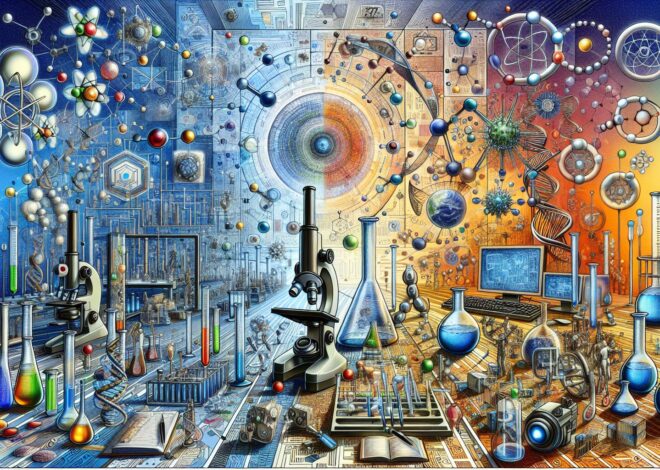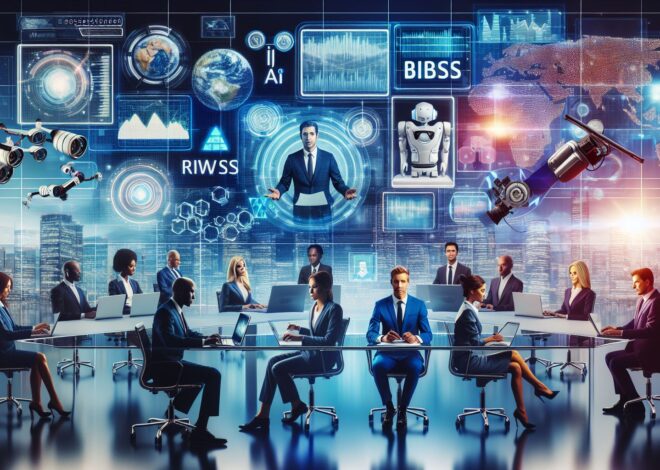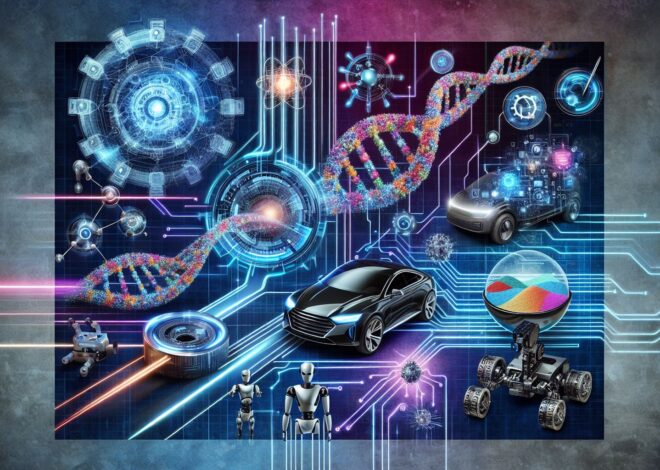Artificial Intelligence Steers the Latest Technological Revolution
The fast-paced development of science and technology continues to shape our world, pushing the boundaries of what is possible. One of the most captivating and promising areas of innovation in recent years is artificial intelligence (AI). AI has permeated various industries and is revolutionizing the way we live and work. In this article, we will explore the latest trends and advancements in AI, and discuss their impacts and implications for the business sector.
Rise of AI in Business
Artificial intelligence has become a key driver of progress in many industries. Companies are increasingly realizing the immense potential of AI in streamlining operations, enhancing decision-making processes, and improving customer experiences. From self-driving cars to voice assistants, AI-powered technologies are becoming increasingly sophisticated, offering businesses new opportunities for growth and innovation.
Impactful Applications of AI
One of the most notable applications of AI in recent years has been in the field of healthcare. AI algorithms can analyze vast amounts of medical data and assist in diagnosing diseases, predicting patient outcomes, and discovering new treatments. This has the potential to revolutionize healthcare delivery, improving patient care and reducing costs.
In the manufacturing sector, AI is driving the emergence of smart factories. By utilizing AI-powered robots and advanced analytics, manufacturers can optimize production processes, improve product quality, and reduce downtime through predictive maintenance. These advancements not only increase efficiency but also create opportunities for new business models and greater customization.
Another area where AI is making significant strides is in financial services. AI-powered algorithms can analyze vast amounts of data and make more accurate predictions, improving risk assessment and fraud detection. Furthermore, virtual assistants and chatbots are taking over customer service, providing round-the-clock support and personalized recommendations.
Ethical Considerations
While the increasing integration of AI in business brings numerous benefits, it also poses ethical challenges. The use of AI raises concerns about privacy, security, and bias. Ensuring transparency and accountability for AI systems is crucial to maintain public trust. Additionally, ethical guidelines and regulations need to be established to govern the development and deployment of AI technologies, safeguarding against potential misuse and unintended consequences.
Future Trajectories
The trajectory of AI development in the business sector points towards increased automation and integration. As AI technologies continue to advance, we can expect more industries to adopt AI to enhance efficiency and productivity. Automation will likely reshape the job market, with certain roles being augmented or replaced by AI-powered systems. However, this also presents opportunities for the creation of new jobs and the need for reskilling and upskilling.
Moreover, advancements in AI are not limited to individual sectors but have the potential to transform the economy as a whole. The interplay between AI and other emerging technologies, such as robotics, blockchain, and the Internet of Things, promises a future where interconnected systems and intelligent machines drive innovation and economic growth on a global scale.
In conclusion, the rapid progress in artificial intelligence is revolutionizing the business landscape, unlocking new opportunities and transforming industries. From healthcare to manufacturing and financial services, AI is making a significant impact, driving efficiency, and enabling innovation. However, ethical considerations must be addressed to ensure responsible development and deployment. As AI continues to evolve, it will reshape the way we work and live, with automation and integration becoming increasingly prevalent. The future holds immense potential for AI to shape our world and drive the next technological revolution.



